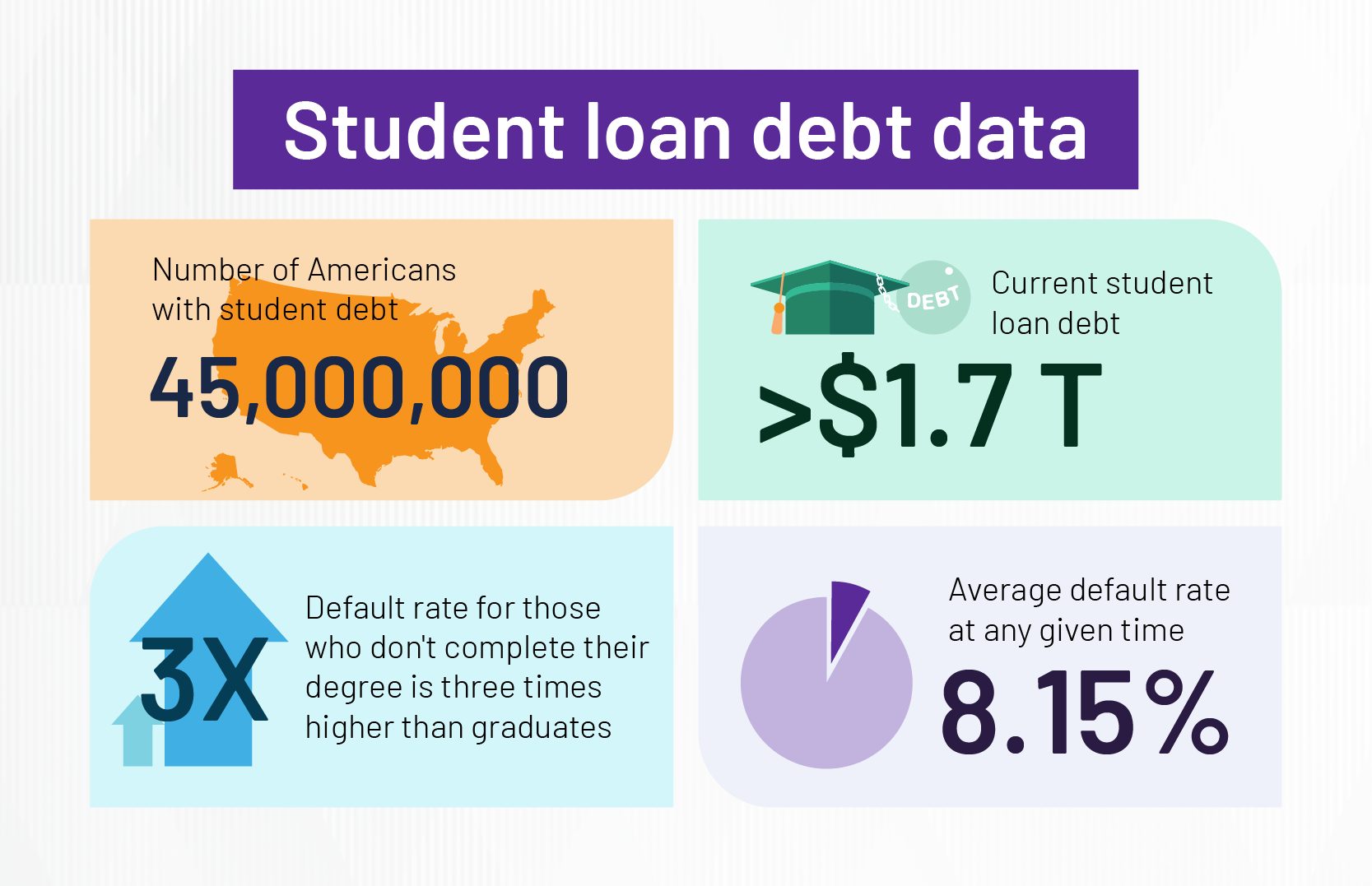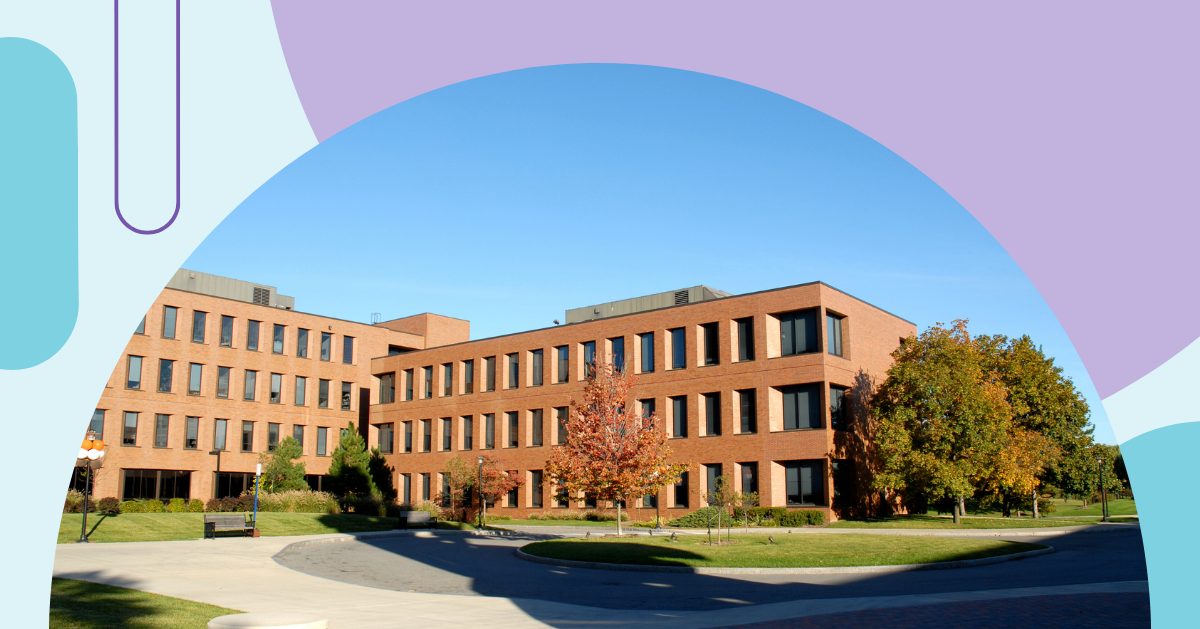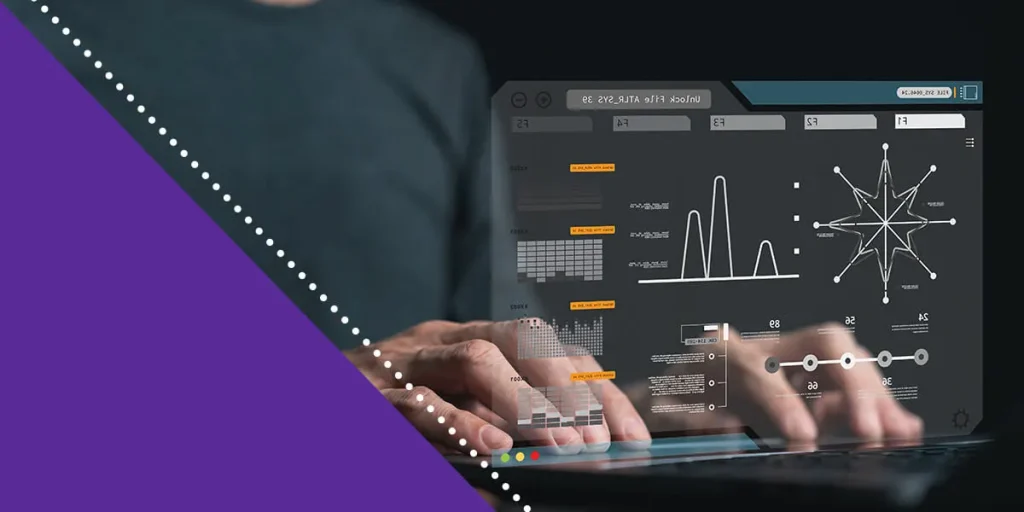
Data is an invaluable tool for colleges and universities looking to enhance their operations and support greater student experiences. Schools like yours can utilize data to foster effective strategies for continuous improvement and stay competitive.
To maximize the potential of your institutional data, your decision-makers must find ways to increase accessibility and remove the common barriers that prevent stakeholders from actively engaging with your insights.
We are diving into the significance of data democratization and how higher education institutions leverage data accessibility to ultimately enhance student outcomes.
What does it mean to democratize data?
Data democratization means making your institution’s data more accessible to a larger group of stakeholders. The goal of making your insights widely available is to enable your community to make informed, evidenced-backed decisions based on the information provided by the data.
When more individuals can harness the power of data to make changes and improvements across campus, your community will enjoy the benefits of making social, programmatic, economic and political progress within your college or university. Ultimately, democratizing data means inviting and empowering your stakeholders to leverage institutional insights to make your operations better for all.
The fundamentals of democratizing data
The key aspects of democratizing data include:
- Accessibility: Making your data convenient and easy to access for your community is essential. Removing barriers to access and storing your data in a centralized location helps your stakeholders more easily retrieve and utilize valuable insights to problem-solve, innovate, or improve different elements of your institution.
- Usability: Not everyone on campus will have the technical know-how and expertise to find meaningful takeaways from your available data. An essential part of democratization is simplifying data analysis with helpful visualization and reporting tools that nonexperts can use.
- Education and literacy: Another important aspect to consider is training. Providing your faculty, students, and staff with instructional resources and training opportunities can help them gain the necessary skills for working with data effectively. You can help them glean useful and worthwhile insights that are key to positive growth.
- Collaboration: Collaboration and communication is integral to optimizing how your institution utilizes its data. Encourage your stakeholders to share their findings and coordinate with others. They should analyze the patterns and trends they find together.
- Transparency and accountability: Your college or university must prioritize secure data practices and methodologies. In addition to protecting private user information, you must also promote the ethical use of data and ensure there is accountability across your institution.
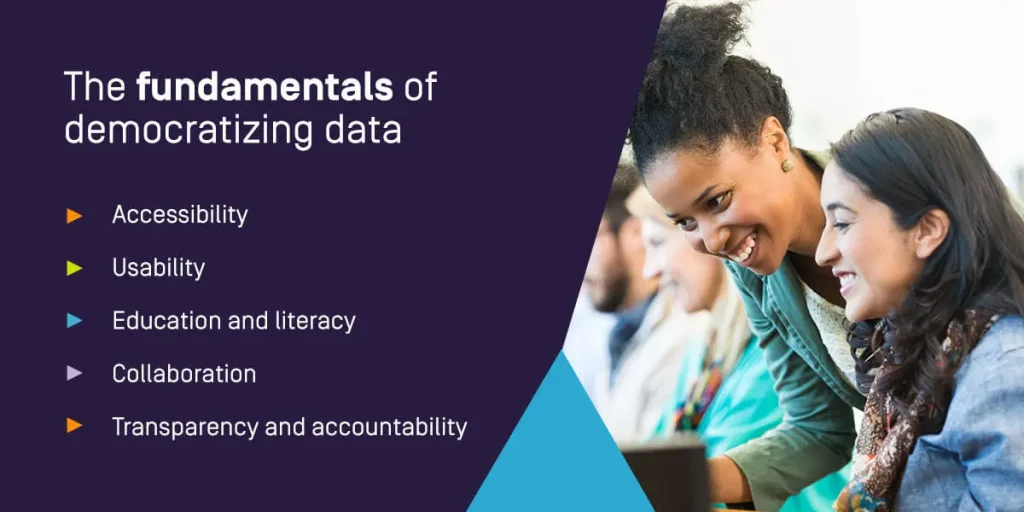
What happens when data isn’t accessible?
Explore the primary disadvantages of having limited data access and silos across your higher education institution:
Limited insights and decision-making
Data provides evidence and insights for more informed decision-making and accurate future predictions. If your faculty, administrators, and academic advisors do not have access to data about your programs, student performance and campus operations, they are at a disadvantage. They must operate on assumptions and their limited knowledge, which can ultimately lead to suboptimal outcomes that are not moving the needle at your institution or supporting your students.
Democratizing data allows your stakeholders to gain a more comprehensive view and understanding of your institution.
Inequitable practices and outcomes
When data is accessible to only a few members of your college or university’s community, the lack of democratization can perpetuate other existing disparities among students. All students deserve fair opportunities for success and to have a voice in your institution’s improvement efforts.
Data democratization allows more people across campus to harness the power of informed decision-making and help ensure equal resource allocation, student support, and professional development opportunities for all.
Difficulty in identifying and addressing challenges
Higher education institutions can utilize data to identify trends, patterns, and outcomes from students and learning programs. These insights make it easier to detect common challenges and implement effective, targeted intervention strategies to address issues and inefficiencies head-on. Without accessible, easy-to-understand data, your faculty, staff, and administrators cannot identify problems and find adequate solutions as quickly.
Lack of transparency and accountability
Another consequence of data inaccessibility is the lack of transparency between your institution and its stakeholders. They do not have the insights necessary to hold your university or college’s decision-makers accountable for their choices and ensure the changes implemented benefit the institution at large.
Transparency is key to establishing trust and collaboration within an institution. A strong sense of trust among your stakeholders is very important and closely linked to your college or university’s reputation.
Missed opportunities for innovation and improvement
Without democratized data, your higher education institution is missing out on valuable opportunities to:
- Identify operational best practices.
- Optimize resources to support student outcomes.
- Implement evidence-based strategies.
Data is key to supporting greater innovation and discovering opportunities to stimulate growth within your institution and its processes. Having insights into student and faculty performance helps you identify the areas where you are falling short and could use additional attention or support.
5 benefits of democratizing data
When you actively democratize data in higher education, your institution can reap many benefits. These include:
1. Fostering data-driven decision-making
A major advantage of democratizing data is supporting data-driven decisions across your institution. Your insights can support informed, evidence-based planning and a sustainable future. With access to your data and the tools to make sense of them, your community can drive change and better align your operations with your organization’s overarching goals and objectives.
2. Empowering your stakeholders and boosting engagement
Democratizing data at your college or university empowers more people to access, understand, and utilize your insights in new ways. You can encourage your stakeholders, including students, staff, and faculty members, to take ownership of their role at your school. Data can help students navigate their educational journeys and make smarter decisions about what courses, majors, and programs to participate in.
3. Supporting institutional research and innovation
Another benefit of improving data accessibility on your campus is supporting greater institutional research and innovation. Democratization makes it easier for individuals from different departments and organizations within your college or university to collaborate and explore new research questions. Your community will have more insight to enhance the quality and impact of your research efforts.
4. Optimizing resource allocation
With comprehensive data insights, the primary decision-makers at your higher education institution can optimize how you distribute your resources to support the greatest growth possible. They can compare different initiatives, programs, and departments, as well as student enrollment data, to assess historic performance and identify opportunities to provide targeted support.
5. Enhancing student outcomes
Data democratization helps colleges and universities enhance student outcomes by closely assessing the effectiveness of academic programs and student performance.
With the right tools, your institution can use data to inform future predictions. For example, you can use insights to identify behavioral patterns that indicate when students are struggling and most at risk of dropping out. If a particular student exhibits these signs, your institution can implement timely intervention strategies to offer greater support and ultimately enhance student outcomes across the board.
How to begin data democratization at your institution
Doing the following will help your higher education institution begin and supercharge your ongoing data democratization process:
Assess current data accessibility
An important first step in preparing your college or university for the data democratization process is assessing your current data culture. Explore the types of data that your systems collect, how you store these insights, and who can access them. You may find there are limitations or restrictions keeping some of your stakeholders from accessing and leveraging your data. These insights can serve as a helpful starting point for making your data more readily available.
Performing an assessment can help you identify opportunities for your institution to improve. Once you understand your data practices, you can implement strategic changes to remove existing barriers and challenges to data usage.
Develop data governance policies
Another essential part of making data more accessible across your institution is creating clear policies around data governance. These guidelines will be the foundation for your democratization efforts and should address the following:
- Security
- Privacy
- Quality
- Compliance
Define how data should be collected, stored, and shared. These instructions will ensure your data management strategies align with relevant ethical considerations and regulations.
Proper data governance policies will help you locate data sets efficiently, stay organized as an institution, and minimize the risk of inaccuracies or errors. These rules will enhance data security and help your organization protect sensitive student and faculty information.
Improve your data infrastructure
As your institution works on data democratization, it can be helpful to improve and upgrade your data infrastructure to optimize efficiency in how you collect, store, and manage your insights. Implementing centralized software solutions can effectively eliminate data silos and their accompanying issues.
When investing in your college or university’s data infrastructure, look for a cloud-based system that offers greater scalability, cybersecurity, and accessibility than on-premises solutions. The right software will enhance data management and enable streamlined access to your institution’s data with the tools to analyze and make sense of it. Advanced technologies and platforms are helping colleges and universities harness greater control over their insights.
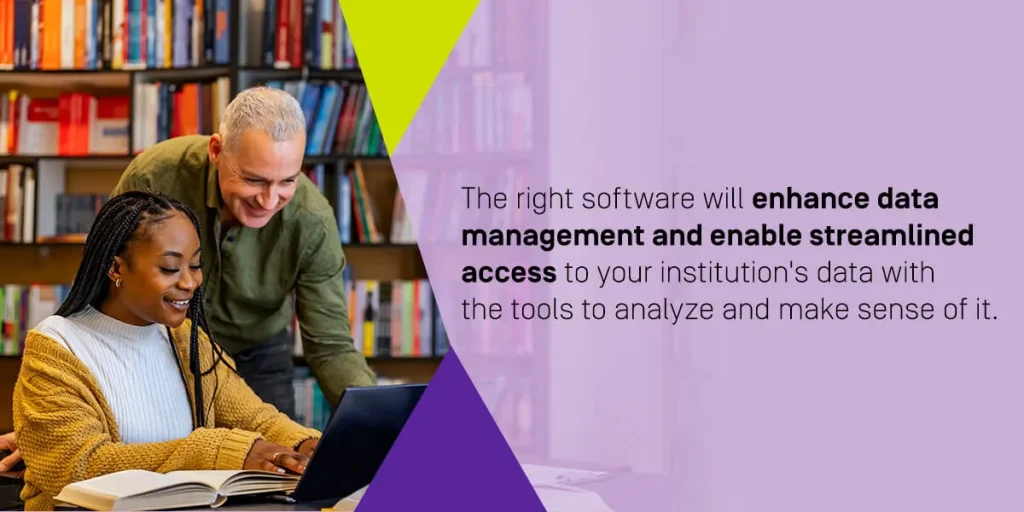
Promote data literacy and offer training
The goal of data democratization is to make data accessible and understandable for more people. You can help the stakeholders at your institution get more out of your insights by offering specialized data literacy training programs for those who want to become more comfortable working with this information.
You can promote data literacy by providing ample opportunities for your faculty, students, and staff members to learn more about data analytics, ethics, and visualizations. As more people understand the value of data-backed decision-making and learn about leveraging data to better prepare for the future, your institution will reap the benefits.
Utilize user-friendly data dashboards and reports
One of the best ways to support data democratization is by providing your institution’s users with an easy-to-use dashboard with self-service tools for formatting activity data and building reports. Self-service is important because it allows your stakeholders to work independently without help from a data engineer or expert.
Your college or university’s users can utilize filters to find data about specific areas of interest. These platforms often support real-time insights, giving your faculty, students, and staff access to timely information to support responsive decision-making. Simple, convenient dashboards and reports make data easier for your stakeholders to navigate and understand.
Encourage data collaboration across your campus
Departmental autonomy at your higher education institution may be causing data silos. If each learning discipline is restricted to using its own independent systems or databases, you may be missing out on opportunities to improve the institution as a whole.
Encourage the various departments at your university or college to exchange and share data with each other. Doing so can promote interdisciplinary exploration and research, further supporting innovation and growth at your school. Collaboration across campus can boost awareness of your data resources and their advantages as well.
Create a data-driven culture
To optimize the benefits your institution reaps from data democratization, it is important to cultivate a culture where data is highly valued and the primary driver for decision-making.
Colleges and universities can create a data-driven culture by promoting data awareness and highlighting examples where data is key to making major improvements on campus. Empower your students, faculty, and staff to engage with and interpret insights relating to their specific experiences. Involve your community in major decisions and demonstrate how you utilized your campus data to find a suitable path forward. The culture you foster will determine your school’s long-term success.
Ensure data security and privacy
Anytime your higher education institution is dealing with sensitive data, you must ensure you’ve implemented the appropriate security measures to safeguard personal information about your community members. Throughout the data democratization process, it is essential to develop privacy policies for your users to follow. You must ensure your institution is handling insights lawfully and ethically.
Good data security is essential for building trust with your stakeholders. They need to have confidence in your college or university to protect their information and use it responsibly. Your institution should also prioritize secure management practices for proprietary research and intellectual property.
Monitor your outcomes
As you strive to democratize data at your higher education institution, remember to monitor and evaluate your outcomes to support continuous improvement efforts. Keep track of metrics for key indicators, such as:
- Graduation rates
- Retention rates
- Academic performance
- Faculty performance
- Student satisfaction
Tracking these outcomes will help you identify where your campus is thriving and where it could use additional resources. You can create benchmarks for performance standards and set objectives for new improvement initiatives. Analyzing your outcomes can help you find evidence-based strategies for promoting greater student success and delivering the best academic experiences possible.
Request a demo of the higher education software from Watermark
If your higher education institution is ready to get more out of its data, turn to the strategic planning and accreditation software from Watermark.
Our solutions will help your college or university democratize its data and foster a culture of continuous improvement. Watermark Planning & Self-Study simplifies data collection and offers actionable insights in a convenient, integrated hub, allowing your institution to streamline process management.
Are you interested in learning more about the higher education software from Watermark? Request a demo online to see our solutions in action today.


















































































































































































































































































































































































